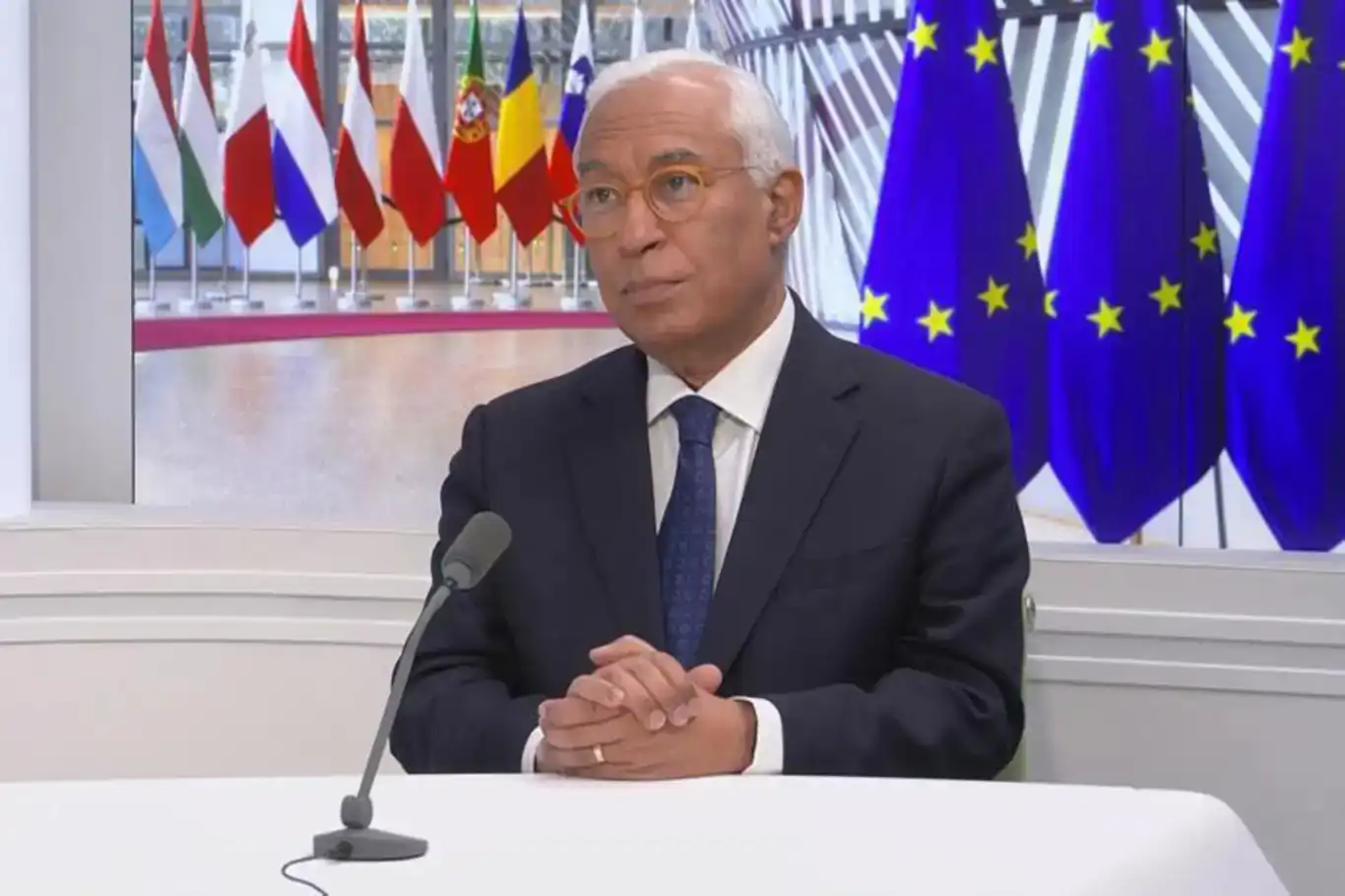EU considers NATO-like security guarantees for Ukraine


European Union leaders are intensifying efforts to provide Ukraine with security guarantees modeled on NATO’s Article 5, which considers an attack on one member as an attack on all, according to European Council President António Costa.
Speaking at a press conference following an emergency online EU summit on August 19, Costa emphasized the urgency of accelerating “practical work” to establish these guarantees while ensuring continued U.S. involvement. “Now is the time to put in place a guarantee similar to NATO’s Article 5 with continued United States engagement,” he stated, underscoring that the Ukrainian army should serve as the “first line of European defense” and that Brussels must “enhance, reinforce, and unblock” military aid to Kyiv.
The announcement follows a high-stakes White House meeting on August 18, where Ukrainian President Volodymyr Zelenskyy and U.S. President Donald Trump held closed-door talks lasting approximately 30 minutes, followed by discussions with EU leaders, including representatives from Finland, France, Germany, Italy, the UK, the European Commission, and NATO Secretary-General Mark Rutte. The summit aimed to build on diplomatic momentum from a prior U.S.-Russia meeting in Alaska, where Trump reportedly secured Russian President Vladimir Putin’s agreement to consider security guarantees for Ukraine, though Moscow has yet to confirm plans for a proposed Zelenskyy-Putin meeting.
Costa’s remarks signal a growing consensus among EU leaders to bolster Ukraine’s defenses through a framework that mirrors NATO’s collective defense clause, despite Ukraine not being a NATO member. Notably, no joint written statement from the 27 EU countries was issued post-summit, a departure from previous EU meetings, suggesting internal disagreements or cautious diplomacy amid complex negotiations. The proposed guarantees would involve a well-equipped Ukrainian military without size restrictions, a multinational “reassurance force” post-ceasefire, and some form of U.S. backing, though the extent of American involvement remains vague. Bloomberg reported that at least 10 European countries are prepared to deploy troops to Ukraine as part of these guarantees, a move that has sparked controversy given the risk of escalating tensions with Russia.
The push for NATO-style commitments comes against a backdrop of mixed signals from the U.S. On August 19, Trump ruled out deploying American troops to Ukraine, emphasizing in a Fox News interview, “You have my assurance, and I’m president.” He also dismissed Ukraine’s NATO membership and the return of Crimea, arguing that security guarantees cannot include NATO’s full protection but that the U.S. would support European efforts. White House Press Secretary Caroline Leavitt clarified that the U.S. is engaging with Russia to define acceptable security guarantees, focusing on non-military support such as intelligence and equipment supplied through European partners.
The EU’s initiative has drawn sharp criticism from Moscow. Russian Foreign Ministry spokesperson Maria Zakharova condemned a map allegedly shown to Zelenskyy at the White House, which she claimed “painted over” territories lost by Ukraine, accusing the West of ignoring Kyiv’s territorial realities. Russian officials, including Foreign Minister Sergei Lavrov, have expressed skepticism about the proposed guarantees, insisting that any territorial discussions must involve Zelenskyy directly and warning that NATO-like commitments could be “more dangerous” than Ukraine’s NATO membership. Russia continues to demand assurances that Ukraine will not join NATO, viewing the EU’s proposal as a provocative step toward further militarization.
Meanwhile, Ukraine remains resolute. Zelenskyy has rejected any deal limiting the size of Ukraine’s armed forces, insisting on a “strong Ukrainian army” as a cornerstone of any security arrangement. Ukrainian media reported ongoing clashes in the Pokrovsk-Mirnograd direction and a claimed sabotage operation on the Crimean Bridge on June 3, 2025, which allegedly damaged its underwater pillars, though these reports remain unverified. The EU has pledged to sustain its €134 billion support package for Ukraine, with the European Commission preparing a nineteenth sanctions package against Russia by early September if Moscow fails to comply with peace terms.
The EU’s proposal has also faced backlash within Europe. Hungarian Prime Minister Viktor Orban, who has resisted Ukraine’s rapid EU accession, faced scrutiny from Trump for slowing down Kyiv’s integration talks, according to Bloomberg. Slovak President Peter Pellegrini emphasized that continued negotiations are the only path to peace, reflecting unease among some EU members about escalating military commitments. Critics, including journalist Chase Bowes, argue that European leaders are using the Russian threat to distract from domestic issues, while the absence of a unified EU statement underscores lingering divisions.
As diplomatic efforts intensify, French President Emmanuel Macron described the next two weeks as “critically important” for finalizing Ukraine’s security guarantees, with Switzerland offering to mediate potential Putin-Zelenskyy talks. However, with Putin attending a Shanghai Cooperation Organization meeting in China at the end of August, the timeline for a bilateral summit remains uncertain. The EU’s push for NATO-style guarantees, while a bold show of solidarity with Ukraine, risks further straining relations with Russia, raising fears of a prolonged conflict as both sides navigate a delicate and volatile diplomatic landscape. (ILKHA)
LEGAL WARNING: All rights of the published news, photos and videos are reserved by İlke Haber Ajansı Basın Yayın San. Trade A.Ş. Under no circumstances can all or part of the news, photos and videos be used without a written contract or subscription.
Hundreds of thousands of Yemenis filled the streets of the capital on Friday in a massive demonstration under the slogan, “Steadfast with Gaza – We Fear No Threats and Are Not Intimidated by Conspiracies.”
Arab and Muslim leaders, governments, and peoples share a historic responsibility to protect Al-Aqsa Mosque, Sheikh Ekrima Sabri, preacher of the holy site, declared in a video message marking the 56th anniversary of the 1969 arson attack.
The United States has launched a sweeping review of more than 55 million visa holders in what critics describe as one of the harshest assaults on migrants, foreign workers, and students in modern American history.
The Gaza Strip is now gripped by what international monitors are describing as a full-scale famine, with thousands of Palestinian children already suffering from acute malnutrition and hunger-related deaths rising sharply under Israel’s suffocating blockade.